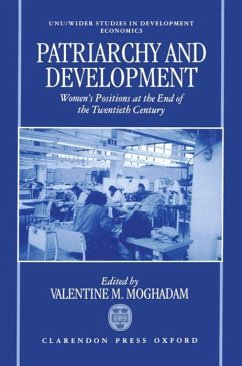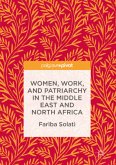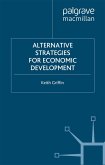Part II offers historical and theoretical perspectives on the evolution of women's positions in the course of development, with contributions by Sylvia Walby, John Lie, Elizabeth Dore, Sheila Carapico, Leela Kasturi, and Jane Parpart. Part III focuses on industrialization, state policies, and women workers, with contributions by Ruth Pearson, Helen Safa, Rita Gallin, Valentine Moghadam, Guy Standing, and Tuovi Allen. The book ends with an appendix of statistical tables providing descriptive data on women in the countries under consideration and others. The contributors are well-known academics and researchers who utilize the methods of economics, sociology, history, and feminist analysis in their case studies of economic development and women's positions.
The chapters in this book were written for a UNU/WIDER research conference convened to explore two parallel phenomena: the changing position of women and gender relations and the relevance of the concept of patriarchy, and the impact of development - and especially industrialization and wage work - on women and gender. They address these questions through theoretical, historical, and empirical approaches, and provide critical analysis and macro- and micro-level data for East Asia, the Middle East and North Africa, Latin America and the Caribbean, sub-Saharan Africa, the Indian subcontinent, the Nordic region, and Eastern Europe and the former Soviet Union. The contributors are well-known academics and researchers who utilize the methods of economics, sociology, history, and feminist analysis in their case studies of economic development and women's positions.
The chapters in this book were written for a UNU/WIDER research conference convened to explore two parallel phenomena: the changing position of women and gender relations and the relevance of the concept of patriarchy, and the impact of development - and especially industrialization and wage work - on women and gender. They address these questions through theoretical, historical, and empirical approaches, and provide critical analysis and macro- and micro-level data for East Asia, the Middle East and North Africa, Latin America and the Caribbean, sub-Saharan Africa, the Indian subcontinent, the Nordic region, and Eastern Europe and the former Soviet Union. The contributors are well-known academics and researchers who utilize the methods of economics, sociology, history, and feminist analysis in their case studies of economic development and women's positions.








